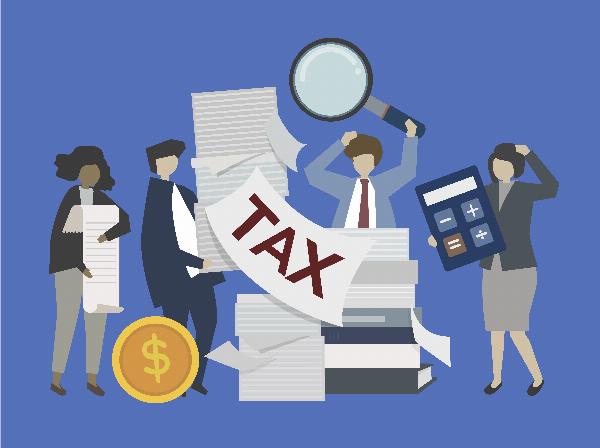 Brand Mentions + PR – Rank Higher. Get Talked About!
Brand Mentions + PR – Rank Higher. Get Talked About!
Navigating the End of Employment Process: Key Steps and Considerations
Written by Yash » Updated on: June 17th, 2025

The end of an employment relationship is critical for both the employer and the employee. It involves numerous legal, financial, and emotional aspects that need careful handling to ensure a smooth transition. Whether an employee is leaving voluntarily, being terminated, or retiring, the organization must follow a structured approach to manage the exit process efficiently. This article explores the key steps and considerations at the end of the employment process, providing valuable insights for employers to navigate this sensitive stage effectively.
Key Steps to be taken into Consideration:
1. Notification and Communication
One of the first steps at the end of the employment process is providing clear and timely notification to the employee. This includes:
- Resignation: If an employee resigns, they should provide a written resignation letter, ideally following the notice period stipulated in their employment contract.
- Termination: In cases of termination, the employer should provide a formal termination letter stating the reasons for the decision. It is crucial to ensure the termination complies with legal requirements and company policies.
Clear communication helps manage expectations and reduces potential conflicts. It is also important to meet with the employee to discuss the reasons for their departure and any concerns they may have.
2. Documentation and Record Keeping
Maintaining accurate and complete records is essential throughout the employment lifecycle, including at its conclusion. Key documents to manage include:
- Exit Interview Forms: Conducting an exit interview provides valuable feedback on the employee's experience and reasons for leaving. This feedback can be used to improve workplace practices.
- Full and Final Settlement Letter: This document outlines the financial settlement, including outstanding salary, benefits, and other dues. Following the proper full and final settlement letter format is crucial to ensure all necessary details are covered.
Documentation also includes updating internal records, revoking access to company systems, and ensuring that all company property is returned.
3. Financial Settlement and Benefits
A critical aspect of the exit process is the financial settlement. This includes:
- Final Salary Payment: The employer must ensure that the departing employee receives their final salary, including unpaid wages, overtime, and bonuses. This payment should be made within the legal timeframe.
- Accrued Benefits: Any accrued but unused benefits, such as vacation days or sick leave, should be compensated per company policy and legal requirements.
Severance Pay: Depending on the circumstances of the departure and local laws, severance pay may be applicable. This is often the case in terminations or layoffs.
The full and final settlement letter format should clearly outline all these components, ensuring transparency and preventing disputes.
4. Legal Compliance
Navigating the end of employment involves adhering to various legal obligations. Key considerations include:
- Employment Contracts: Review the employee's contract to ensure compliance with notice periods, non-compete clauses, and other contractual obligations.
- Local Labor Laws: Different jurisdictions have specific laws governing employment termination, severance pay, and other related matters. Employers must know and comply with these regulations to avoid legal complications.
Data Protection: Ensure that data protection laws handle the employee's data. This includes securely storing or disposing of sensitive information.
5. Exit Interview and Feedback
Conducting an exit interview is valuable for gaining insights into the employee's experience and identifying areas for improvement within the organization. During the exit interview, consider discussing:
- Reasons for Leaving: Understanding the factors contributing to the employee's decision to leave can highlight potential issues within the company culture or management practices.
- Feedback on Management: The departing employee's feedback on their supervisors and colleagues can provide a perspective on team dynamics and leadership effectiveness.
- Suggestions for Improvement: Employees may offer constructive suggestions for enhancing workplace policies, processes, or benefits.
The information gathered during exit interviews should be used constructively to make necessary changes and improve employee retention.
6. Return of Company Property
Another important step is ensuring the return of all company property. This includes:
- Equipment and Devices: Laptops, mobile phones, and other electronic devices provided by the company must be returned in good condition.
- Access Cards and Keys: The employee should return all access cards, keys, and badges used to enter the company premises.
- Company Documents and Data: Any physical or digital documents, data, or proprietary information in the employee's possession should be returned or deleted.
A checklist can be helpful to ensure that all items are accounted for, preventing potential security breaches.
7. Transition and Knowledge Transfer
A smooth transition is vital for maintaining business continuity. This involves:
- Handover of Responsibilities: The departing employee should hand over their duties to a colleague or new hire. This includes sharing key information, contacts, and ongoing projects.
- Knowledge Transfer: Documenting critical knowledge and procedures is essential to prevent loss of institutional knowledge. This can be done through written documentation or training sessions.
- Client and Vendor Communication: Informing clients and vendors about the employee's departure and introducing their replacement helps maintain professional relationships and service quality.
8. Post-Employment Considerations
After the employee has left, there are still a few considerations to address:
- Reference Requests: Be prepared to provide employment references or verifications for the former employee. Ensure that all provided information is accurate and complies with company policies.
- Post-Employment Obligations: Depending on the employee's role and contract terms, there may be post-employment obligations, such as non-compete clauses or confidentiality agreements.
It's important to handle these aspects professionally to maintain a positive reputation and avoid potential legal issues.
9. Emotional and Professional Support
The end of employment can be challenging for both the employee and their colleagues. Providing emotional and professional support can ease the transition:
- Support for Departing Employees: Offer career counseling, job placement assistance, or references to support the employee's future endeavors.
- Support for Remaining Employees: Address any concerns or uncertainties among remaining employees to maintain morale and productivity.
A compassionate approach to the end of the employment process can enhance the company's reputation and foster a positive work environment.
Conclusion
Ending an employment relationship is a significant event that requires careful management. Employers can ensure a smooth transition by following a structured approach, including clear communication, thorough documentation, legal compliance, and support for all parties involved. Proper documentation, such as the "full and final settlement letter format," is crucial in providing clarity and transparency and ultimately, handling the end of employment with professionalism and empathy benefits both the organization and the departing employee, paving the way for a positive and respectful conclusion to the employment journey.
Note: IndiBlogHub features both user-submitted and editorial content. We do not verify third-party contributions. Read our Disclaimer and Privacy Policyfor details.
Copyright © 2019-2025 IndiBlogHub.com. All rights reserved. Hosted on DigitalOcean for fast, reliable performance.














